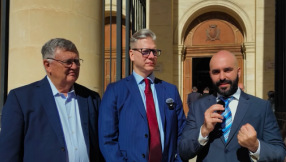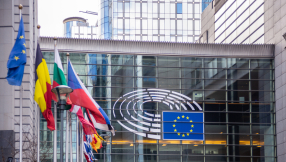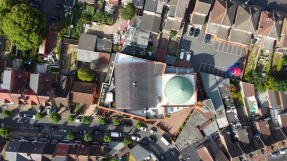
The Counsellors and Psychotherapists Regulation Bill is approximately 300 words long. For a law that has as many potential consequences as this one, that seems rather short. Yet even within that, it only takes one sentence to cause many people a huge amount of misery.
When discussing any future code of practice for psychotherapists, it says "The code must include a prohibition on gay to straight conversion therapy". Twelve words that could make many people's lives very difficult indeed.
The intent behind the law is good. Geraint Davies, the Labour MP for Swansea West who is pushing this bill through, clearly has his intentions well lined up. The problem at present is the ability of just about anyone from anywhere with any or no qualifications of any kind, to set themselves up a psychotherapist and begin administering treatment.
Stories of abuse of this lack of oversight range from therapists asking their patients to remove their clothes and embrace the therapist naked, to other instances of what has been called "holding therapy" where therapists forcibly hold down people to engage a state of anger designed to ultimately provoke enforced catharsis. While all these matters are of great concern, there is a fundamental difference between these cases and what Mr Davies is attempting to ban.
Mr Davies wants to ban a motivation for therapy, not a method. He takes the view that any and all attempts by anyone to attempt to change a sexual orientation are necessarily abusive. The basis for this being that many in the psychiatric profession have declared their view that homosexuality is not a cerebral pathogen or mental deformity of any kind, and that therefore attempting to 'treat' such a condition could end up causing a great deal of damage.
To provide an analogy, imagine putting a cast on a perfectly healthy leg. After a while, you would most likely develop cramp, blisters, and many other conditions. Not to mention the fact that presumably if you are attempting to heal a leg that is already healthy, you probably don't entirely understand what a healthy one looks like. You could therefore end up shattering the knee bones by trying to forcibly correct the knee to be able to bend through 270 degrees, rather than the normal near 180.
Simply banning treatment for gay to straight conversion therapy assumes that everyone who ever feels such attractions feels perfectly natural about it and has no desire to change. This is not the case in many instances. Research done into this topic has been highly flawed, with the most famous academic article by Ariel Shidlo and Michael Schroeder using a fundamentally biased sample selection. When gathering research participants, the headline of their advertisement read "Help Us Document the Damage of Homosexual therapies". This is the statistical equivalent of a political opinion poll that only interviews people in the headquarters of the Morning Star. Several other pieces of research, such as the longitudinal study by Jones and Yarhouse showed that by using conventional psychotherapeutic methods, there was practically no "harm" of any kind.
The people involved in these studies have a voice. Dr Mike Davidson is one of a number of people in the so-called "ex-gay" movement in the UK. He himself has managed to overcome his feelings, but he doesn't describe his attitude towards homosexuality as a disease.
"I see homosexuality as a normal developmental aberration. Which I know would sound profoundly disrespectful to some people, but that is how I have experienced it," he said to the Daily Telegraph. When talking about the aptness of using therapy to treat something that isn't a disease, he said: "There are plenty of people who work in a therapeutic context to achieve life goals."
Specifically responding to Mr Davies' proposed law earlier this week, he said: "I can hardly believe that our Parliament is contemplating legislation that you might expect in a dictatorship, forcing people with feelings they don't want to keep, to conform to a lifestyle that a very vociferous lobby promotes – the homosexual lifestyle. Those who do not want to live as a homosexual are not motivated by ideology but by a heart-felt desire to live differently. And I can point to many case studies where caring, professional counselling has enabled individuals to live fulfilled lives in the way they prefer to live."
Mr Davies doesn't consider the possibility that any sexual attraction of any kind might be wrong for someone. While there may be many people who have no problem at all with their attractions, homosexual, bisexual, pansexual, unisexual, asexual etc, there are undoubtedly others who do feel a problem, and who wish to seek out genuine help. It is a tremendous irony that a law that is designed in the mindset of protecting or respecting the dignity of a minority, should actually then go and disrespect and damage the dignity of another minority all together.
Removing this precept of the law would not mean it necessary to vindicate all forms of treatment for those with unwanted homosexual feelings. Nor would it mean accepting the idea that all homosexuals are somehow "ill" and therefore in need of treatment. What it would do is accept the reality of the complexity of human sexuality.
In all its complexity, it is possible, for one reason or another, that someone might develop attractions that they don't want. And while abusive therapies and treatments have abounded and are totally unjustifiable, we shouldn't discount the experience of those who have seen their attractions changed to fit a pattern they would prefer.
LivingOut.org is a collection of accounts of Anglicans who have either rejected homosexuality and embraced celibacy, or who have, through one means or another, changed their attractions. It would be wrong to write off their experiences because they are ideologically inconvenient. Although Mr Davies' intent is noble, the law he proposes is a sledgehammer blow to fix a broken stopwatch. This law, in its current form, should not be passed













